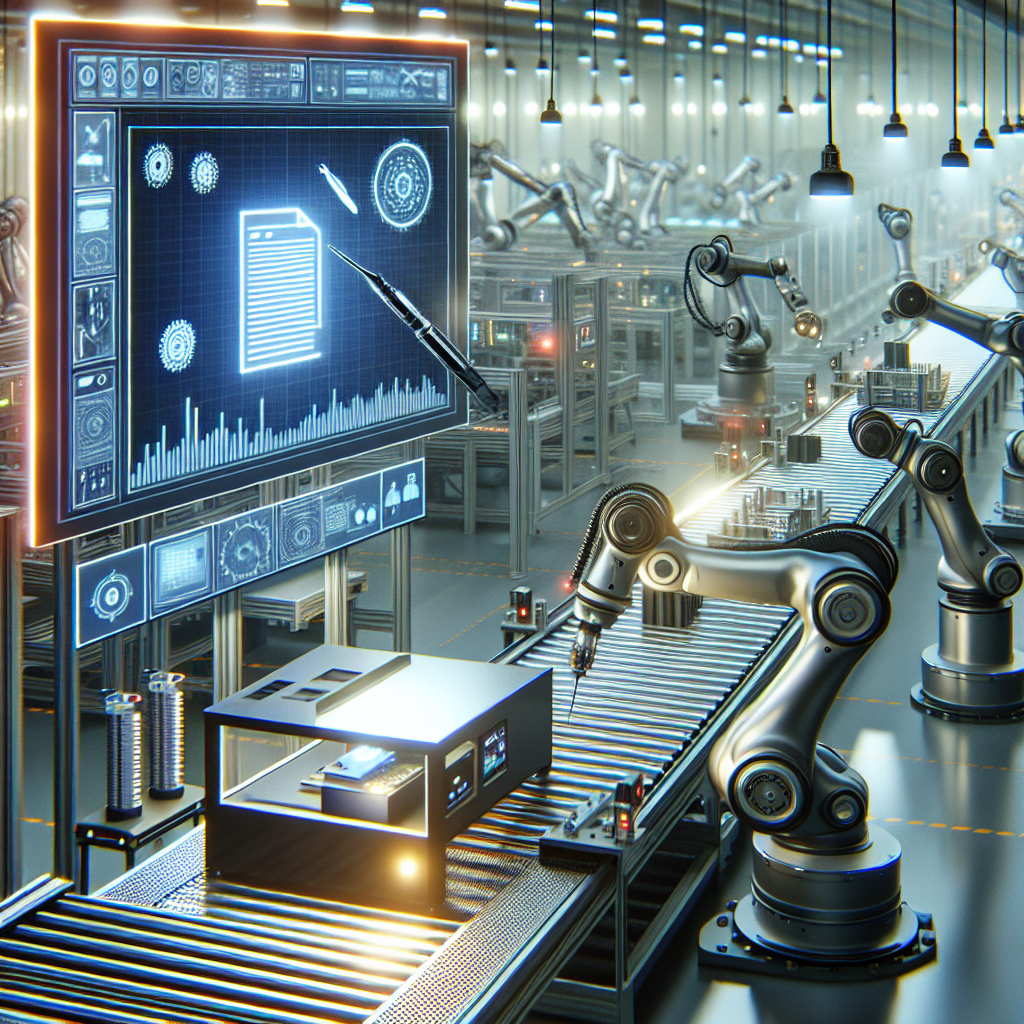In today’s fast-paced manufacturing environment, quality assurance is a critical aspect of ensuring that products meet the highest standards of quality and performance. With the advent of artificial intelligence (AI) technology, manufacturers are now able to leverage the power of AI-driven quality assurance to enhance their production processes and improve overall product quality.
AI-driven quality assurance in manufacturing involves the use of advanced AI algorithms and machine learning techniques to automate and optimize quality control processes. By analyzing vast amounts of data in real-time, AI systems can detect defects, anomalies, and deviations from established quality standards much faster and more accurately than human inspectors.
One of the key benefits of AI-driven quality assurance is its ability to improve production efficiency and reduce waste. By automating repetitive and time-consuming tasks, such as visual inspections and defect detection, AI systems can help manufacturers identify and address quality issues in real-time, leading to faster production cycles and reduced scrap rates.
Another advantage of AI-driven quality assurance is its ability to enhance product consistency and reliability. By continuously monitoring and analyzing production processes, AI systems can identify potential quality issues before they escalate, ensuring that all products meet the same high standards of quality and performance.
Furthermore, AI-driven quality assurance can also help manufacturers reduce the risk of product recalls and customer complaints. By detecting defects early in the production process, AI systems can prevent defective products from reaching the market, thereby protecting the brand reputation and avoiding costly recalls.
Overall, AI-driven quality assurance in manufacturing is a game-changer for the industry, offering manufacturers a powerful tool to improve product quality, reduce costs, and enhance customer satisfaction.
FAQs:
Q: How does AI-driven quality assurance work in manufacturing?
A: AI-driven quality assurance in manufacturing involves the use of advanced AI algorithms and machine learning techniques to automate and optimize quality control processes. By analyzing vast amounts of data in real-time, AI systems can detect defects, anomalies, and deviations from established quality standards much faster and more accurately than human inspectors.
Q: What are the benefits of AI-driven quality assurance in manufacturing?
A: Some of the key benefits of AI-driven quality assurance in manufacturing include improved production efficiency, reduced waste, enhanced product consistency and reliability, and reduced risk of product recalls and customer complaints.
Q: Is AI-driven quality assurance expensive to implement?
A: While the initial investment in AI-driven quality assurance technology may be significant, the long-term benefits in terms of improved product quality, reduced costs, and increased efficiency can outweigh the upfront costs. Additionally, there are now more affordable options available for smaller manufacturers to implement AI-driven quality assurance solutions.
Q: Can AI-driven quality assurance replace human inspectors?
A: While AI-driven quality assurance can automate and optimize many quality control processes, human inspectors are still essential for certain tasks that require human judgment and intuition. AI systems can work in conjunction with human inspectors to enhance overall quality control processes and improve efficiency.
Q: How can manufacturers get started with implementing AI-driven quality assurance?
A: Manufacturers looking to implement AI-driven quality assurance can start by conducting a thorough assessment of their current quality control processes and identifying areas where AI technology can be most beneficial. They can then explore different AI-driven quality assurance solutions available in the market and work with a trusted technology partner to implement the chosen solution effectively.

